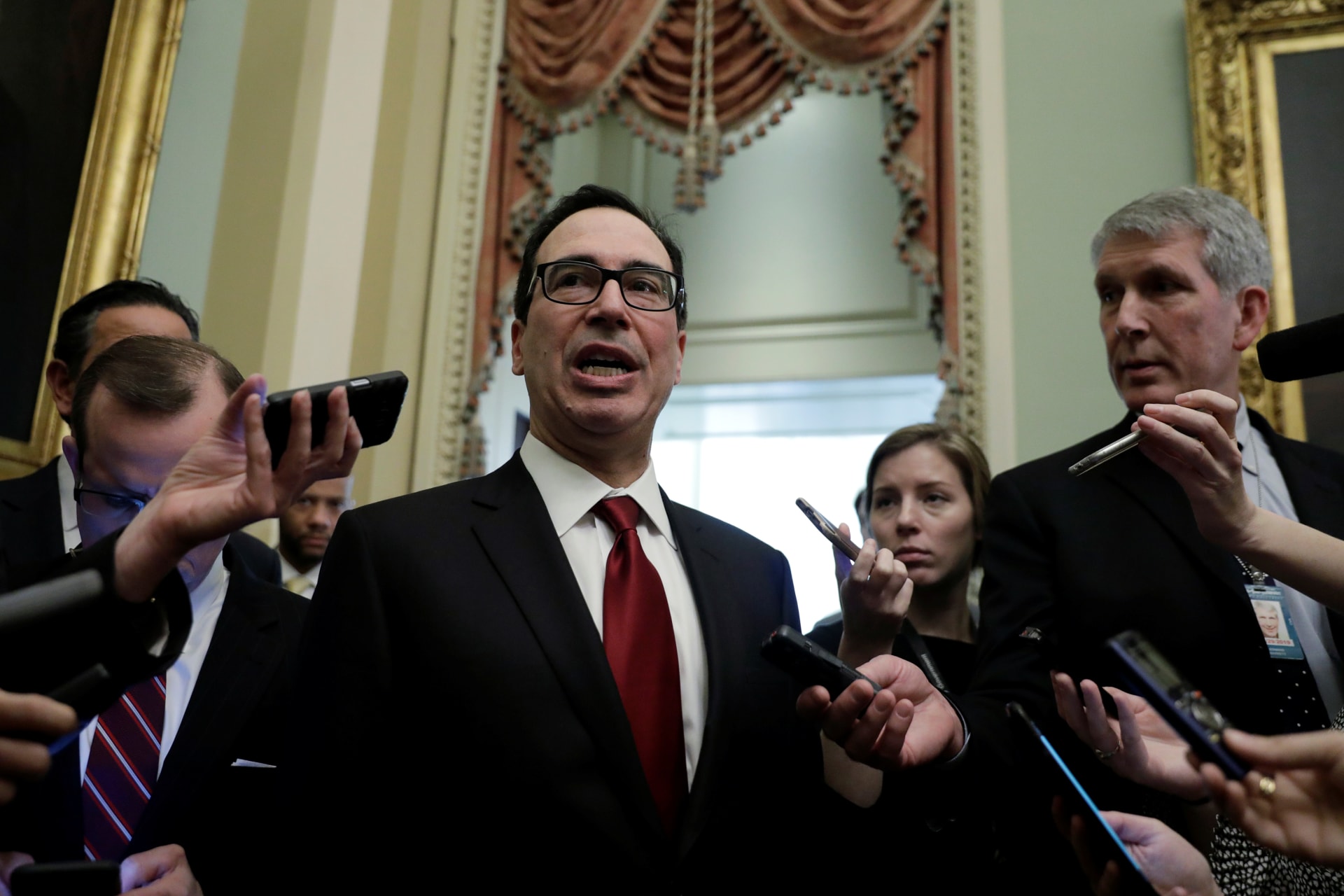The Russia Sanctions Test in the U.S. Senate
A move to block sanctions relief has been defeated, averting a likely spike in global aluminum prices but also spotlighting the tough road ahead for Congress in shaping policy on Russia.

By experts and staff
- Published
Experts
![]() By Stephen SestanovichGeorge F. Kennan Senior Fellow for Russian and Eurasian Studies
By Stephen SestanovichGeorge F. Kennan Senior Fellow for Russian and Eurasian Studies
Fifty-seven senators led by New York Democrat Chuck Schumer tried unsuccessfully this week to keep the Trump administration from going forward with sanctions relief for Russia’s largest aluminum producer, Rusal, and its parent companies. The vote highlights internal tensions over Russia policy and the difficulty Congress faces in seeking to shape relations with Moscow.
Why Stick With Sanctions
Sanctions against Russia have enjoyed strong support in Congress since the annexation of Crimea in 2014, and even more so since the summer of 2017, when concern that President Donald J. Trump planned to lift Ukraine-related sanctions produced strong majorities in both houses limiting his ability to do so. This week Senate Democrats, all of whom voted against sanctions relief for Rusal, got eleven Republicans to join them.
The Treasury Department claimed that relief made sense because sanctions had forced Oleg Deripaska, Rusal’s principal owner and a close ally of President Vladimir Putin, to agree to cut his holdings from 70 percent to 45 percent. (Deripaska himself will remain personally sanctioned.) Senators were right to deride this claim. Some of Deripaska’s shares will simply be donated to his own foundation or to relatives; others will be acquired by a government-owned bank, itself under sanctions, in exchange for forgiveness of Deripaska’s debts. The package bespeaks considerable naivete about how Russia works: does Treasury really believe Deripaska will not continue to run (or, for that matter, own) Rusal?
Why Support Relief
The Trump administration did, however, have one strong argument for accepting Deripaska’s deal. Rusal is an important part of the global aluminum market, and businesses in both the United States and Europe—which buys almost half the company’s exports—want that market to be stable. (Many European governments lobbied Congress to support relief.) When Treasury first imposed sanctions last April, aluminum prices quickly jumped 20 percent (and 35 percent at one point). That turmoil was too much even for the Trump administration, and within two weeks Treasury backed off; it suspended the sanctions and began looking for some way to avoid reimposing them. Since then, big aluminum purchasers worldwide have surely tried to insulate themselves against new disruptions. Even so, if Congress had blocked Treasury’s deal with Deripaska this week, the risk of new price spikes would have been great.
Was There Another Choice?
Senators should not have had to choose between being suckered by Deripaska and throwing global markets into confusion. They might also have considered:
- authorizing Treasury to keep Rusal-related sanctions suspended, but with specific instructions about how and when they might be reimposed;
- obliging the administration to take other measures against Russia as a precondition of sanctions relief (for example, retaliating against Russia’s attacks last November on Ukrainian ships in the Kerch Strait); or
- identifying other measures that European governments would have to take before full relief would be granted (for example, canceling Russia’s Nord Stream 2 gas pipeline, which Trump and other U.S. officials oppose but have failed to block).
Policy Lessons
Bipartisan votes against the administration’s handling of Rusal showed real unhappiness with the president’s overall Russia policy. But they reflect a sharp drop-off from the near-unanimous hostility that followed Trump’s first meetings with Putin in 2017. To push successfully for new approaches on other issues—from sanctions to arms control to election meddling—Congress will have to speak with one voice, both to the administration and to Moscow. Because it is unlikely to do so, congressional critics will remain frustrated by Trump’s approach to Russia, but they will struggle to develop effective alternatives.
